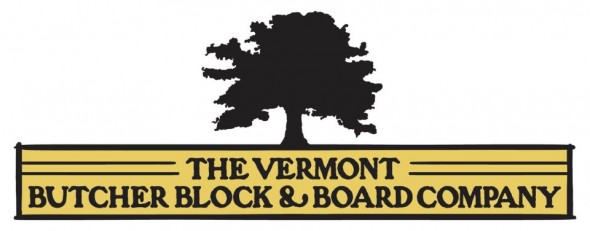
Highlights
- David Glickman, founder of Vermont Butcher Block and Board Company, pitches his wooden kitchen products, seeking $400,000 for 25% equity.
- The company, which makes cutting boards, utensils, bowls, and more from Vermont Cherry, Maple, and Walnut, has generated $2.9 million in total sales.
- Despite solid sales, Glickman leaves the Tank without a deal as the Sharks express concerns about scalability and market trends.
Overview
| Category | Details |
|---|---|
| Name | Vermont Butcher Block and Board Company |
| Founder | David Glickman |
| Industry | Kitchen Products, Home Décor |
| Product | Wooden cutting boards, utensils, bowls, and more |
| Funding | Sought $400,000 for 25% equity on Shark Tank |
| Investment Ask | $400,000 |
| Equity Offered | 25% |
| Valuation | $1.6 million |
David Glickman, a New York native who sought refuge in the hills of Vermont, pitches The Vermont Butcher Block and Board Company in Shark Tank episode 421. Glickman left the hustle and bustle of New York City back in 2003 to pursue a more relaxed and fulfilling lifestyle. He’d earned an MBA while working in New York and that led him to pursue his passion as his vocation and the Vermont Butcher Block and Board Company was born. They create cutting blocks and boards, utensils, bowls, platters, and kitchen & home decor out of Vermont Cherry, Maple, and Walnut. They also sell Vermont made food products. Mr. Glickman has a retail store in Burlington, VT, but it appears they sell most of their products via their website.
Vermont Butcher Block and Board Company Shark Tank Recap
David Glickman comes all the way from Vermont to enter the Shark Tank in episode 423, looking for a $400,000 investment in return for 25% of the Vermont Butcher Block and Board Company. Glickman enters the Shark Tank in a unique tie-dyed business suit, complete with matching shorts.
He presents each of the Sharks with samples of his cutting boards, wooden bowls, serving utensils, and more. He wears tie-dye as a “symbol of freedom.”
Kevin O’Leary says “I don’t care if you wear goat skin; do you make any money?”
Glickman has sold $2.9 million total, with a profit of $150,000 in the past year. The retail store is doing an average of $400,000 a year. Glickman also sells wholesale and via the ‘web. He’s got a problem common to many small businesses – he can’t meet the demand for the products.
Lori Greiner mentions the “new wave” in cutting boards, antimicrobial materials like plastics. Glickman counters with scientific articles that don’t support the trend, saying that plastics tend to harbor germs more readily than wood.
Mark Cuban isn’t comfortable giving advice in a business he’s not familiar with. He’s out.
Kevin O’Leary doesn’t believe he agrees on the direction the business is going in. He’s out.
Daymond John is “just not excited” about the business. He’s out.
Robert Herjavec loves the story, but deems the risk too high. He’s out.
Only Lori Greiner remains. Glickman offers her a larger percentage of the business, but she believes the antimicrobial boards will take a larger part of the market, and doesn’t think it’s a good investment. She’s out.
Glickman raises his offer, appealing to the other Sharks, but in the end, he leaves the Shark Tank without a deal.
Vermont Butcher Block and Board Company Shark Tank Update
Despite Lori Greiner’s concerns and the other Sharks’ lack of enthusiasm, Vermont Butcher Block and Board Company did eventually move to the larger manufacturing facility, growing the business. It continues to sell, having been featured in several well-known magazines, like This Old House and Cooks.
Although the Sharks didn’t take a bite of this cutting board company, Glickman continues to live his “Vermontrepreneur” tie-dyed dream, growing his business into a success.
The success didn’t last. In November, 2017, Glickman declared bankruptcy, leaving behind $800,000 in unpaid debts, including $84,000 owed to the landlord of the manufacturing facility. Since then, a man named Lucas Jenson opened a business with the same name. They sell cutting boards and butcher block countertops. Glickman is keeping a low profile.
Posts about Vermont Butcher Block and Board Company on Shark Tank Blog
Vermont Wood Products
Lori, microbial in soaps was proved to not work. It’s very doubtful it works on cutting boards. It’s just a marketing ploy. If people think they don’t need to wash their board they will get very sick.
I had a great butcher block that got too old. I haven’t been able to replace it in two decades. The small one from Vermont is just like it. Vermont wood products are synonymous with quality. He can sell to Sur la table, William-Sonoma. And more.
Today is September 7th 2023. I watch the segment and then looked up wood cutting boards and bacteria. It said that the bacteria was gone within minutes and in 24 hours there was Zero evidence. I did not specify the wood type.